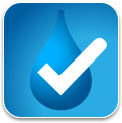COVID-19 Information Hub – General Information
The information hub is no longer being managed. Due to this the links have been disabled.
Coronaviruses can make humans and animals sick. Some coronaviruses can cause illness similar to the common cold and others can cause more serious diseases, including Severe Acute Respiratory Syndrome (SARS) and Middle East respiratory syndrome (MERS). This new coronavirus originated in Hubei Province, China and the disease outbreak is named COVID-19.
COVID-19 is most likely to spread from person-to-person through:
- direct close contact with a person while they are infectious
- close contact with a person with a confirmed infection who coughs or sneezes, or
- touching objects or surfaces (such as door handles or tables) contaminated from a cough or sneeze from a person with a confirmed infection, and then touching your mouth or face.
Most infections are only transmitted by people when they have symptoms. These can include fever, a cough, sore throat, tiredness and shortness of breath.
People who have returned from a country or region that is at high or moderate risk for COVID-19 should monitor their health closely. If you develop symptoms including a fever and cough you should isolate yourself immediately and urgently seek medical attention. High risk countries include:
- Mainland China
- Iran
- Italy
- Republic of Korea
Moderate risk countries include:
- Cambodia
- Hong Kong
- Indonesia
- Japan
- Singapore
- Thailand
People who think they may have been in close contact with a confirmed case of COVID-19 should also monitor their health and seek urgent medical attention.
While COVID-19 is of concern, it is important to remember that most people displaying symptoms such as fever, cough, sore throat or tiredness are likely suffering with a cold or other respiratory illness - not COVID-19.
1. Employers should provide adequate facilities or products (such as hand sanitiser) to allow employees to maintain good hygiene practices. This is the best defence against most viruses.
2. Advise any employees to self-isolate at home for 14 days if:
- in the last 14 days they have been in any of the high-risk countries listed above
- they have been in contact with confirmed cases of COVID-19
3. Perform routine environmental cleaning:
- Routinely clean all frequently touched surfaces in the workplace, such as workstations, countertops, and doorknobs. Use the cleaning agents that are usually used in these areas and follow the directions on the label.
- No additional disinfection beyond routine cleaning is recommended at this time.
- Provide disposable wipes so that commonly used surfaces (for example, doorknobs, keyboards, remote controls, desks) can be wiped down by employees before each use.
1. Wash your hands
- After coughing or sneezing
- When caring for the sick
- Before, during and after you prepare food
- Before eating
- After toilet use
- When hands are visibly dirty
- After handling animals or animal waste
2. Protect others from getting sick
- When coughing and sneezing cover mouth and nose with flexed elbow or tissue
- Throw tissue into closed bin immediately after use
- Clean hands with alcohol-based hand rub or soap and water
3. Avoid contact with others (stay more than 1.5 metres from people).
Specific requirements are in place for people who have returned from a country or region that is at high or moderate risk for COVID-19 or think may they have been in close contact with a confirmed case of COVID-19.
People who must isolate need to stay at home and must not attend public places, in particular work, school, childcare or university. Only people who usually live in the household should be in the home.
Do not allow visitors into the home. Where possible, get others such as friends or family who are not required to be isolated to get food or other necessities for you. If you must leave the home, such as to seek medical care, wear a mask if you have one.
If you develop symptoms (fever, a cough, sore throat, tiredness or shortness of breath) within 14 days of leaving country or region that is at higher risk for COVID-19, or within 14 days of last contact of a confirmed case, you should arrange to see your doctor for urgent assessment.
You should telephone the health clinic or hospital before you arrive and tell them your travel history or that you may have been in contact with a potential case of COVID-19. You must remain isolated either in your home or a healthcare setting until public health authorities inform you it is safe for you to return to your usual activities.
Some people who are infected may not get sick at all, some will get mild symptoms from which they will recover easily, and others may become very ill, very quickly. From previous experience with other Coronaviruses, the people at most risk of serious infection are:
- people with compromised immune systems (e.g. cancer)
- elderly people
- Aboriginal and Torres Strait Islander people
- people with diagnosed chronic medical conditions
- very young children and babies*
- people in group residential settings
- people in detention facilities.
*At this stage the risk to children and babies, and the role children play in the transmission of COVID-19, is not clear. However, there has so far been a low rate of confirmed COVID-19 cases among children, relative to the broader population.
There is no specific treatment for Coronaviruses. Antibiotics are not effective against these viruses. Most of the symptoms can be treated with supportive medical care.
You do not need to wear a mask if you are healthy. While the use of masks can help to prevent transmission of disease from infected patients to others, masks are not currently recommended for use by healthy members of the public for the prevention of infections like COVID-19.
Full and part-time employees who can’t come to work because they are sick can take paid sick leave. If an employee needs to look after a family member or member of the employee’s household who is sick with COVID-19, or suffering an unexpected emergency, they are entitled to take paid carer’s leave.
Casual employees are entitled to 2 days of unpaid carer’s leave per occasion. Full and part-time employees can take unpaid carer’s leave if they have no paid sick or carer’s leave left.
If an employee is required by the Australian Government or Department of Health to self-isolate, then this is not a direction from their employer and so must use Annual Leave or RDO entitlements for the period of absence.
An employee must give their employer evidence of the illness or unexpected emergency if their employer asks for it.
If an employee wants to stay at home as a precaution against being exposed to COVID-19, they will need to make a request to work from home (if possible) or to take some form of paid or unpaid leave, such as annual leave or long service leave. These requests are subject to the normal leave application process in the workplace.
Employees are encouraged to discuss their level of risk of contracting COVID-19 with their doctor, workplace health and safety representative or manager.
You can find up-to-date information on quarantine requirements on the Department of Health’s website.
Under work health and safety laws, employers are required to ensure the health and safety of their workers and others at the workplace (as far as is reasonably practical). Workers also have responsibilities under those laws.
If an employee is at risk of infection from COVID-19 (for example, because the employee has recently travelled through mainland China, or has been in close contact with someone who has the virus), you should request the employee seek medical clearance from a doctor and to work from home (if possible), or not work during the risk period. Where an employer directs a full-time or part-time employee not to work, the employee would ordinarily be entitled to be paid while subject to the direction. You should consider your obligations under any applicable enterprise agreement, award, employees’ contracts of employment, and workplace policies.
Employers need to balance their legal obligations, including those relating to anti-discrimination.





